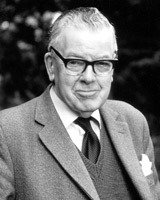 The NT does not contain a detailed code of rules for the Christian. Codes of rules, as Paul explains elsewhere, are suited to the period of immaturity when the children of God are still under guardians; but children who have come to years of responsibility know their father’s will without having to be provided with a long list of “Do’s” and “Don’t’s.”
The NT does not contain a detailed code of rules for the Christian. Codes of rules, as Paul explains elsewhere, are suited to the period of immaturity when the children of God are still under guardians; but children who have come to years of responsibility know their father’s will without having to be provided with a long list of “Do’s” and “Don’t’s.”What the NT does provide is those basic principles of Christian living which may be applied to varying situations of life as they arise. So, after answering the Corinthian Christians’ question about the eating of food that has been offered to idols, Paul sums up his advice in the words: “whether you eat or drink, or whatever you do, do all to the glory of God” (1 Cor. 10:31). Phrases current in worship, like “to the glory of God” or (as here) “in the name of the Lord Jesus,” were given a practical relevance by being applied to the concerns of ordinary life.
Bruce, F. F. (1984). The Epistles to the Colossians, to Philemon, and to the Ephesians (p. 160). Grand Rapids, MI: Wm. B. Eerdmans Publishing Co.

Comments